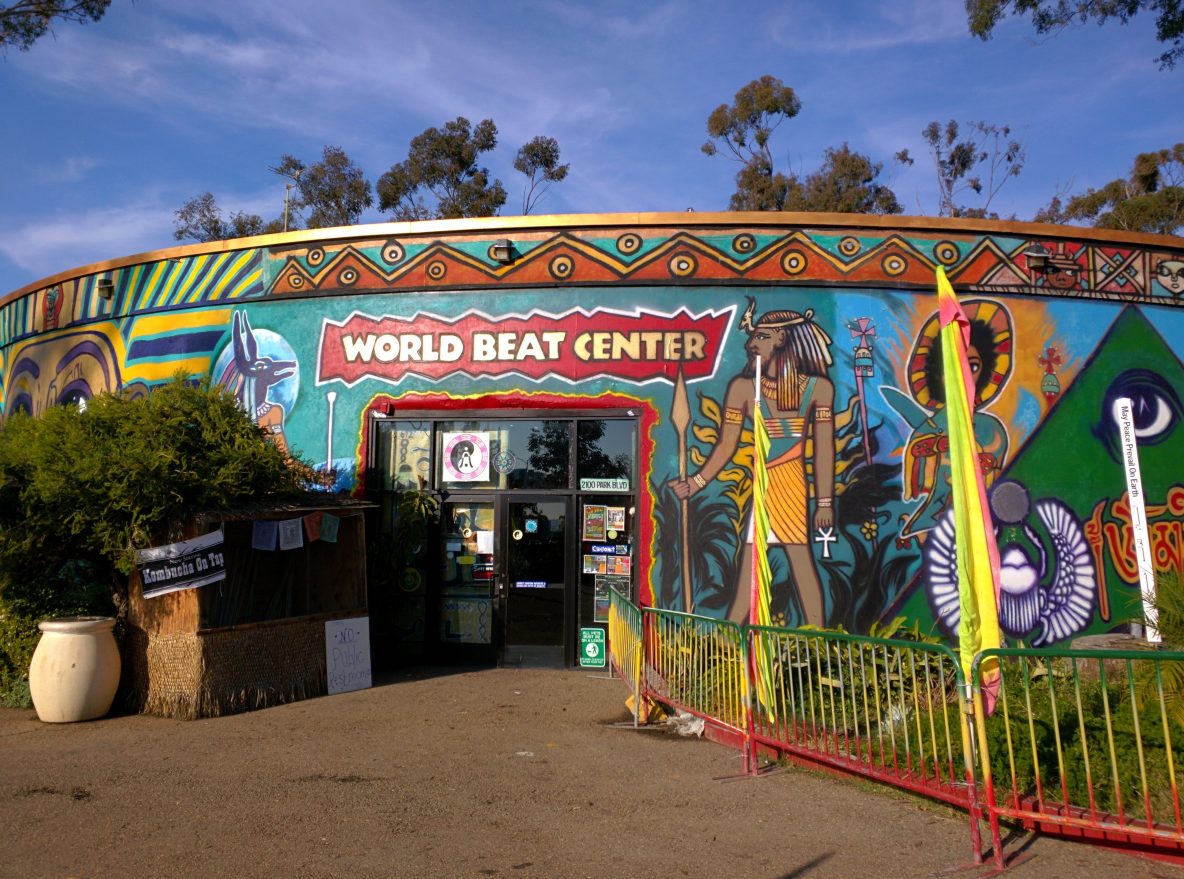In February we hosted our third annual all-community stakeholder meeting with partners from across the county representing professionals in education, health, local and regional government, and NGOs. We gathered at the WorldBeat Cultural Center in Balboa Park where we communicated research and education outcomes to date, gathered feedback on our work, and brainstormed how to achieve our project’s next steps while incorporating the needs and desires of our partners. We had the privilege of holding this meeting in partnership with WorldBeat Cultural Center, an organization which is central to community and culture in San Diego, and which we have worked closely with through our weather station installation project and subsequent curriculum development.
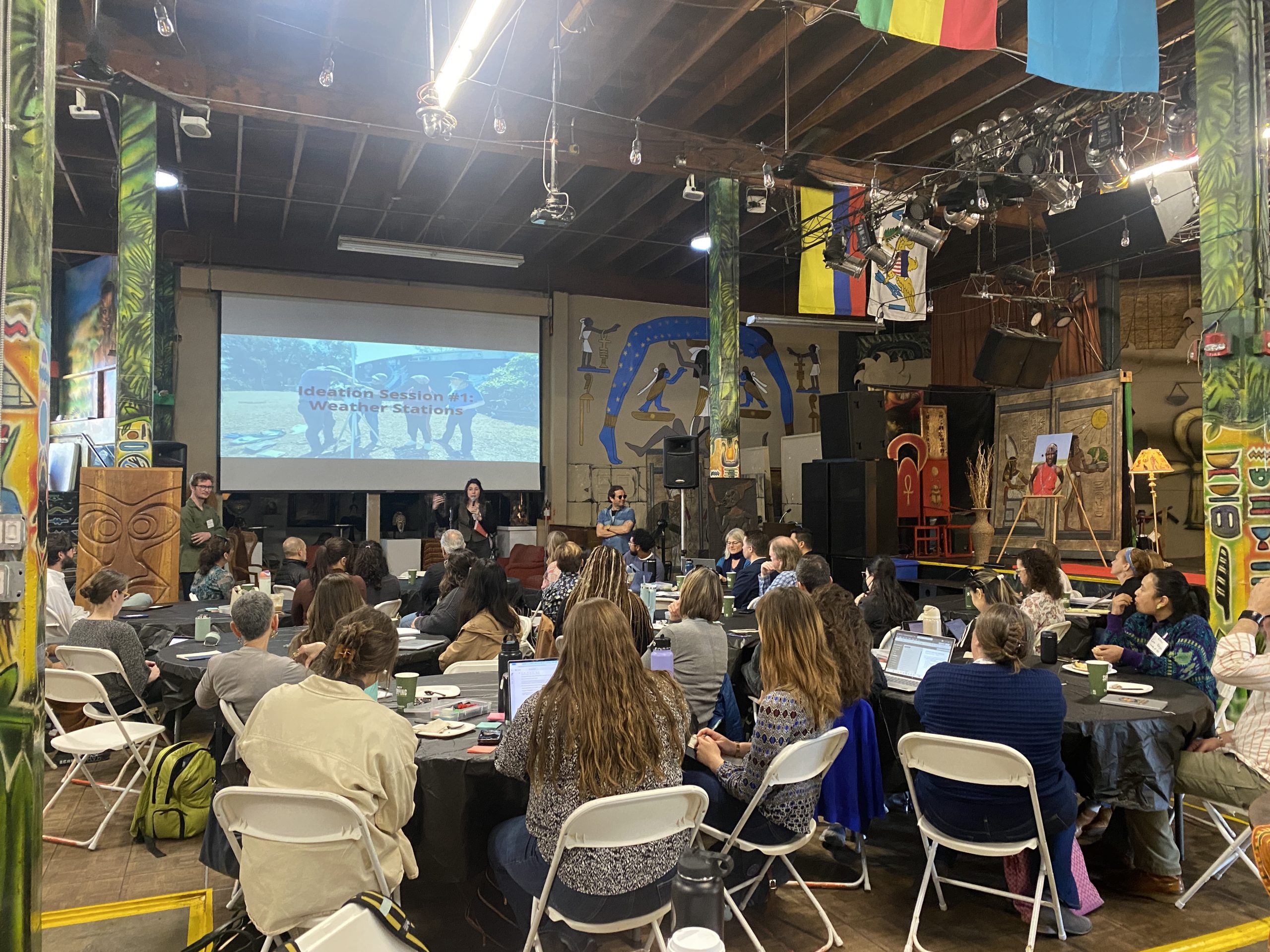
City Heights Prep teacher Rachel Davey shares her perspective during the weather station ideation session.
The day began with a networking session over breakfast, followed by a welcome from Hub PI Mark Merrifield and a project overview from project manager Maren Hale. We then jumped into our first of three “ideation sessions” of the day, focused on our weather station deployment efforts and led by Sasha Gershunov and Alexander Weyant. These ideation sessions, built around three of our core research Theme Areas, combined project updates with interactive activities centered on focus questions meant to guide discussions that can inform next steps.
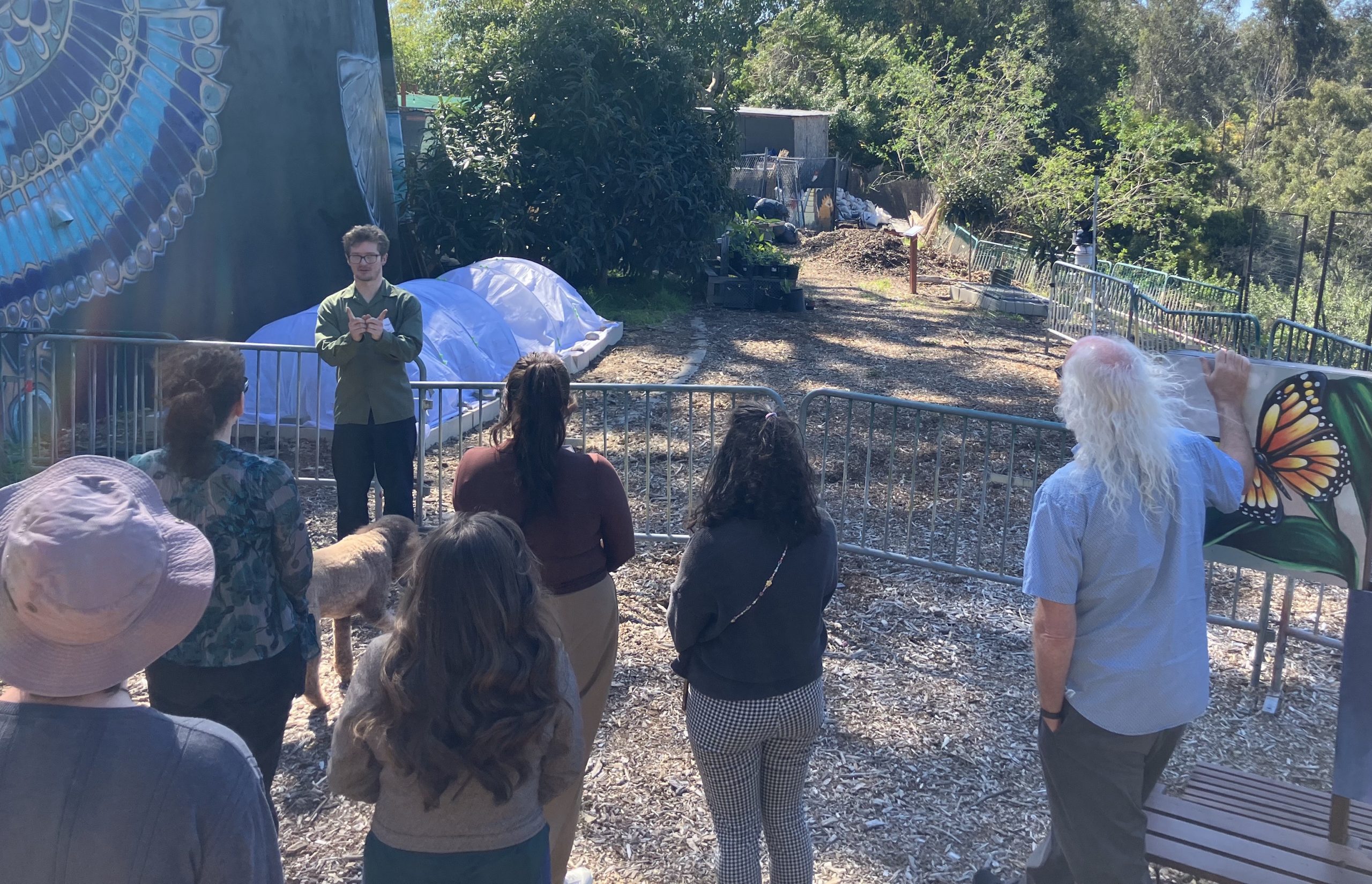
Graduate student Alexander Weyant provides attendees with a tour of the WorldBeat Center weather station and explains how weather stations work and the information they provide. Photo credit: Morgan Levy
Sasha and Alexander shared their work to date on our weather station effort, which has included installations at San Diego French American School, City Heights Prep, Olympian High School, and WorldBeat Cultural Center. The session highlighted work from two guest speakers: Rachel Davey, a teacher at City Heights Prep Middle School, who we have been working closely with on curricula centered around weather station data, and who shared her experience working with the Hub and resources for educators; as well as Victor Minces, an artist who is working with the Heat Hub and EarthLab Community Station to develop an interactive art piece to accompany the weather station at EarthLab, which will sonify weather data. At lunch, Alexander also provided guests with a guided tour of the weather station present on site at WorldBeat Center.
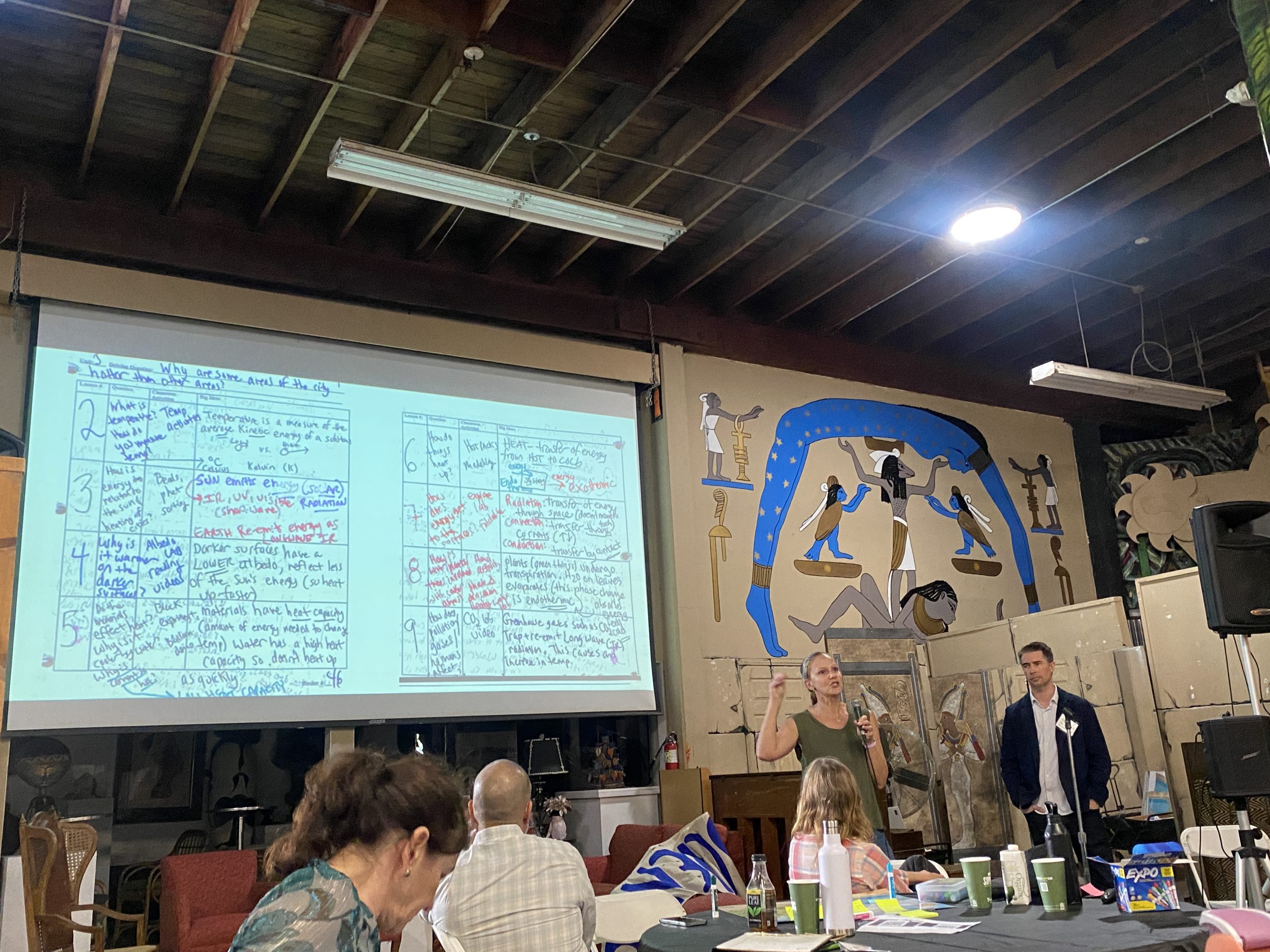
Rachel Meisner shares examples of student responses to the question “Why are some areas of the city hotter than other areas?” during the education team ideation session.
Our second ideation session focused on the Hub’s education work, specifically the Cooler Communities curriculum, and was led by Hub co-PI Nan Renner and Alec Barron. This session was built around the essential question “How can we optimize the use of Cooler Communities curriculum resources and professional learning opportunities?” Nan and Alec were joined in leading this section by Rachel Meisner, from Sweetwater Union High School District, as well as Zoë Randall, of San Diego Unified School District – both of whom have been instrumental in developing and implementing the Heat Hub’s curriculum resources. The team led the attendees through a demonstration of a Cooler Communities lesson, in which attendees interacted in small groups to observe and make inferences about temperature and the built environment in our local context of Balboa Park, and provided background on the process of developing curricula through the Heat Hub. We were thrilled to hear that several stakeholders present said that they would use resources from this unit to develop curriculum for teacher professional learning and for students. The feedback we collected during this portion of the workshop will be crucial for informing how to improve upon the Cooler Communities curriculum and how it might be adapted for educational settings outside of the classroom.
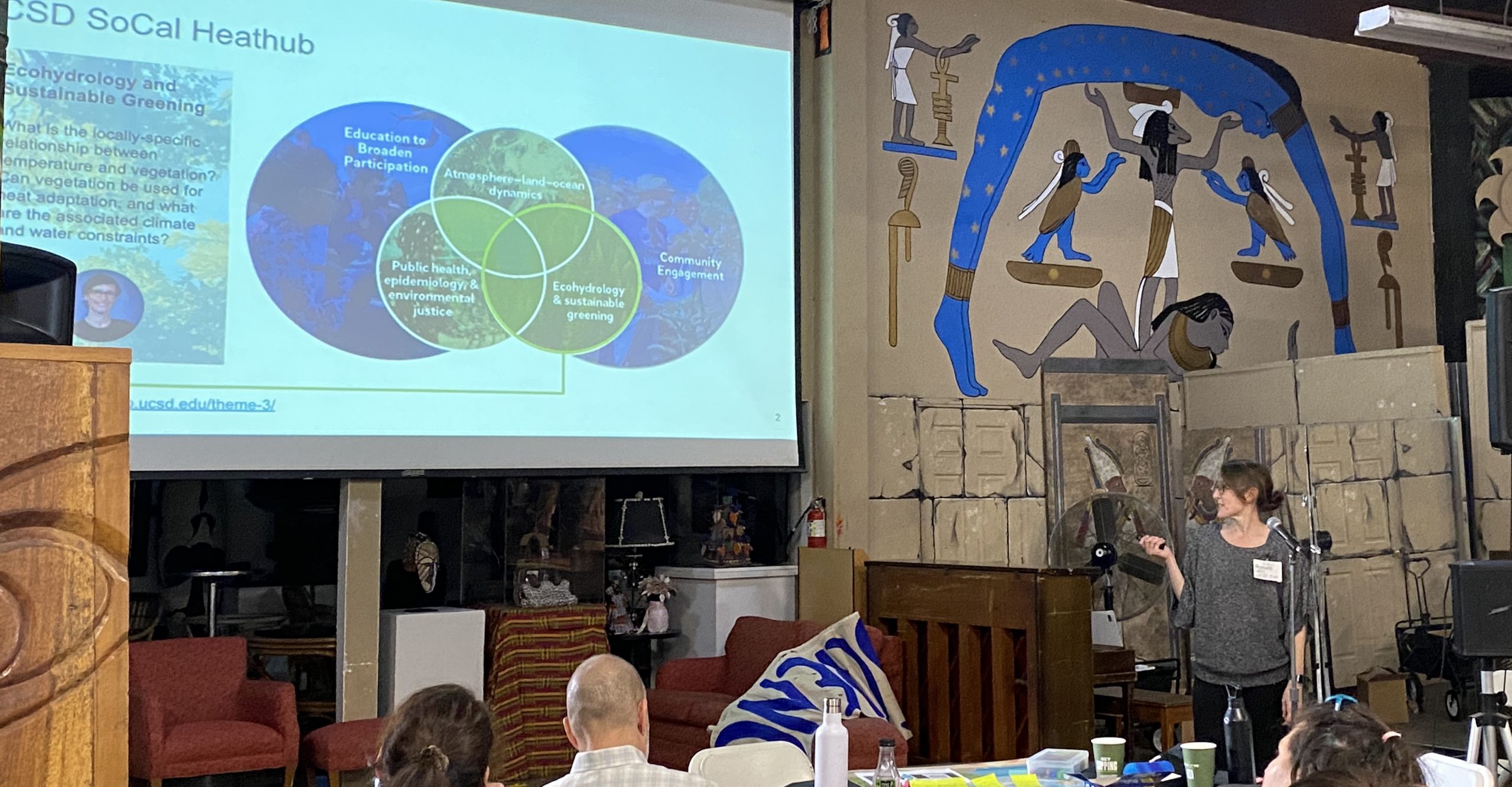
Morgan Levy walks participants through an overview of ecohydrology.
Finally, our last ideation session was led by Hub co-PI Morgan Levy. In this session, Morgan gave an overview of the topic of ecohydrology, how it fits into the broader work of the Heat Hub, and how her group is studying it using data sources ranging from satellites to weather stations. Morgan then provided an update on our ecohydrology team’s recent research and concluded by showcasing the new Ecohydrology and Heat Explorer tool developed by team member Zhuohan Fang. This tool provides users with an accessible way to explore the interactions between heat, plants, and water. We hope it can not only be applied in educational settings but also as one item in a toolbox that policymakers use to create sustainable, resilient climate adaptation strategies.
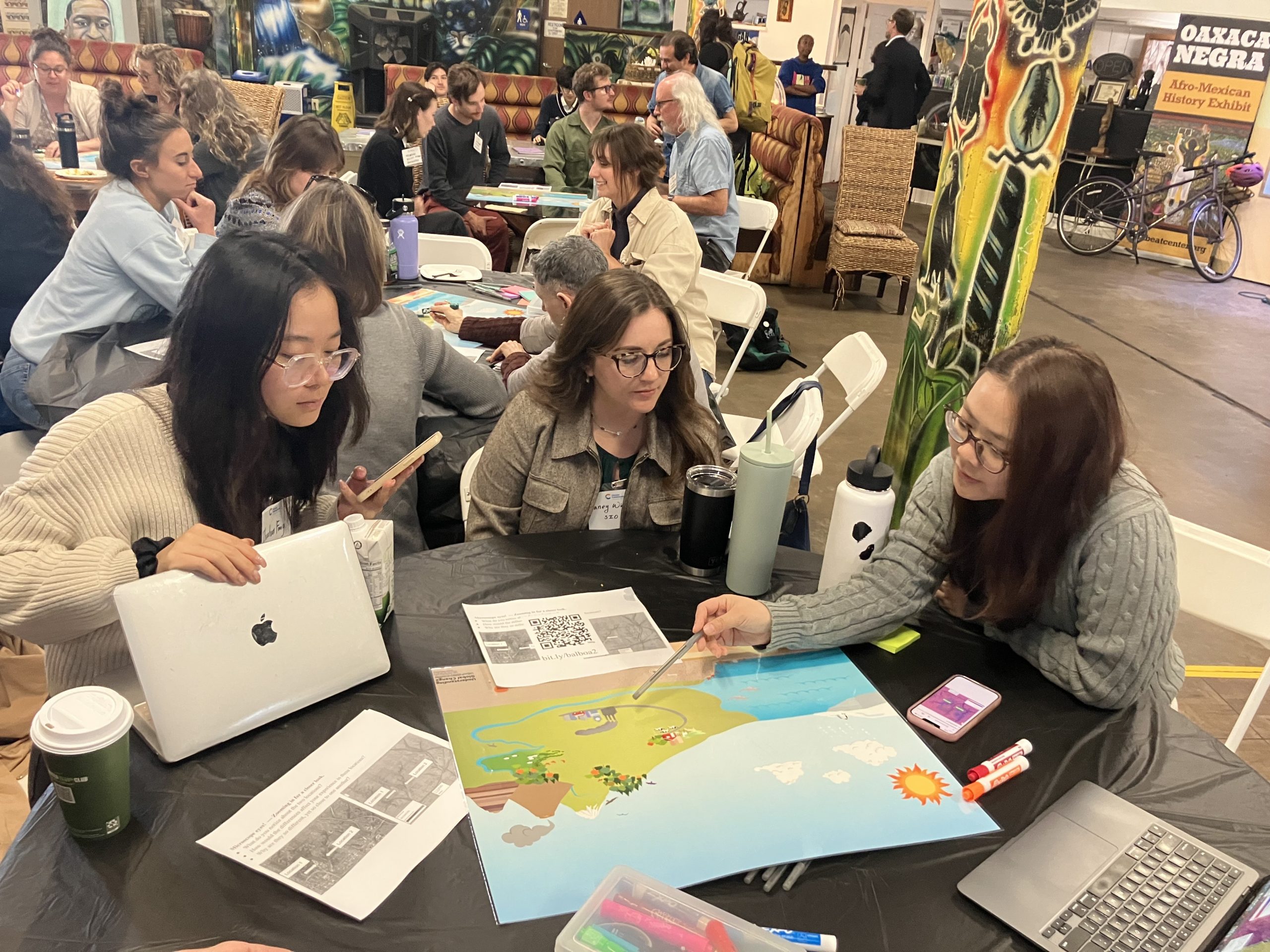
Heat Hub ecohydrology team members Zhuohan Fang, Laney Wicker, and Xueli Yang participate in the interactive Cooler Communities activities led by the education team. Photo credit: Morgan Levy
Following this workshop, we’ve been reflecting on the feedback gathered by note-takers during the ideation sessions and are back to work on our research and curriculum development. We want to acknowledge all of the participants for taking the time out of their day to join us in conversation, and are eager to continue this work and create more opportunities like this one down the road!
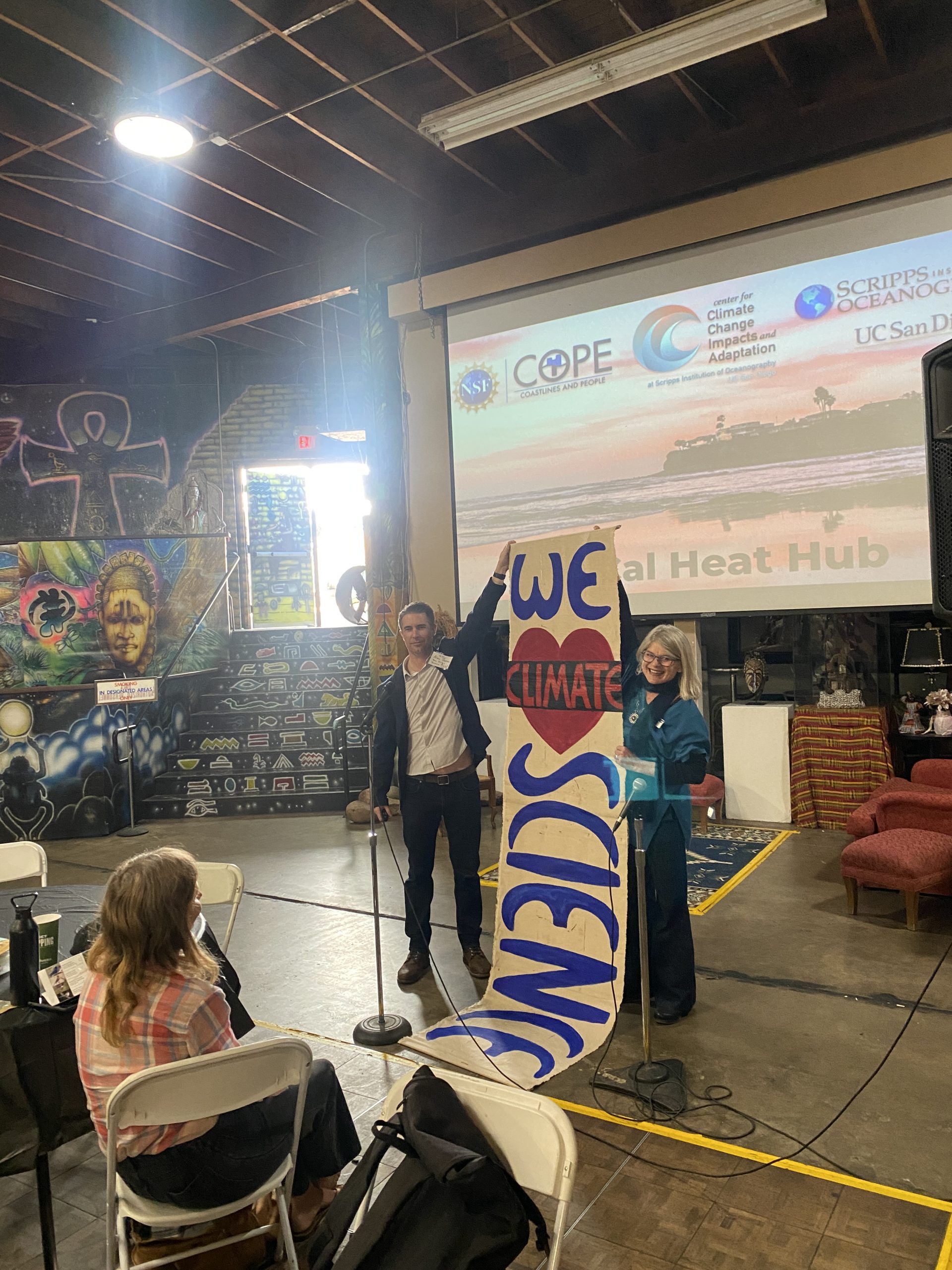
Nan Renner and Alec Barron hold up a banner reading “We ❤️ Climate Science”
Header image credit: WorldBeat Cultural Center

